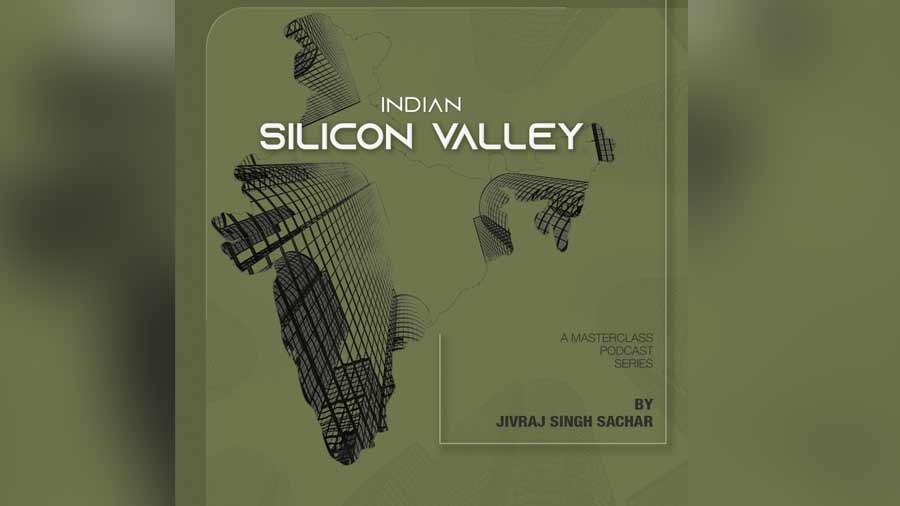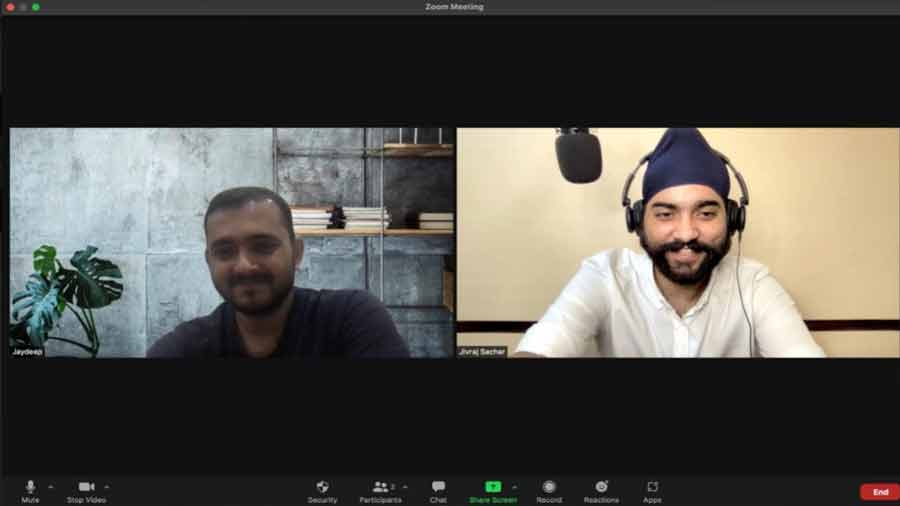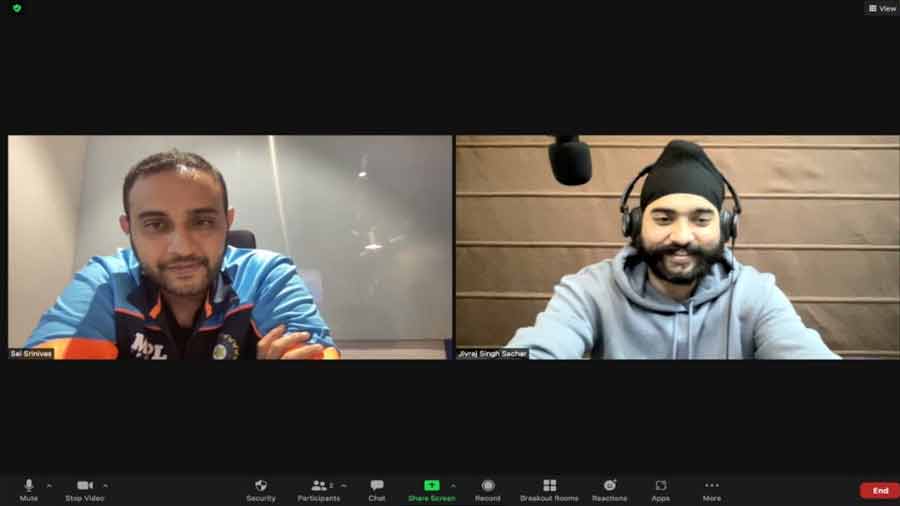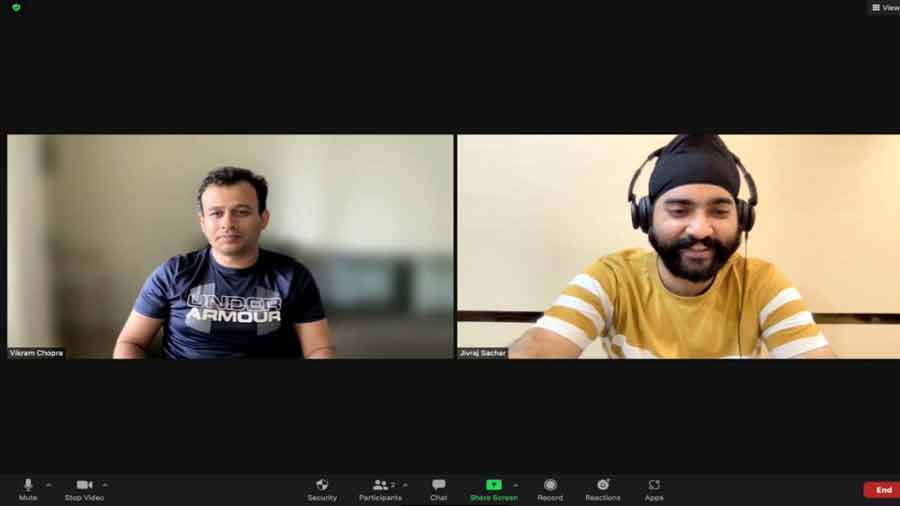Since March 2021, 23-year-old Jivraj Singh Sachar’s podcast, Indian Silicon Valley, has ranked among Spotify’s Top 10 business podcasts in India. It also made the rankings in 10 other countries besides India.
But like most success stories, this one too began with cold calls. “Many people read emails but don’t have time to reply, or maybe they prioritise differently. But I believe that with perseverance, they do come around,” Sachar says. The podcaster recalls the time he found a number on a brand’s Instagram profile and it turned out to be the CEO’s personal contact, which helped him land an episode.

Indian Silicon Valley has ranked among Spotify India’s Top 10 business podcasts since March 2021
Sachar started the Indian Silicon Valley podcast when he was 21 because he wanted to build a content repository for people his age, who aspired to build a business. The podcast is designed as a series of detailed conversations with founders, investors and domain experts from successful startup ecosystems and tries to democratise industry knowledge for aspiring entrepreneurs.
Like many other students scheduled to graduate in 2020, Sachar too had ambitions of moving from Kolkata to another city for work. That is, until the pandemic brought an unforeseen halt to his and everyone else’s plans.
“I was curious about how to build a business, especially because I came from a non-tech background. I had three choices. I could start my own company, join someone who founded a company or educate myself about the process. The problem in joining a company made me realise that this is not something I was facing alone. People saw the size of companies like Ola or Unacademy and wanted to know how they began and what they did right,” Sachar explains.
The inside track
The world of finance, startups and investment may seem intimidating to many. And while a business podcast may not be the go-to Sunday content for some, audio seemed like a frictionless solution for Sachar considering not every guest was keen on the video format.
“I didn't put much thought into the decision. I just wanted to do this consistently in short intervals, so that I can evaluate at every step. I gave myself six months. My only investment was a mic and a laptop – and things were good to go. My first podcast was on August 2020. It has now been over 17 months and I am extremely proud that I’ve managed to drop an episode every Sunday since then,” he smiles.

Sachar hosts Jaydeep Barman, co-founder and CEO of Rebel Foods
Sachar reveals he keeps a large database of the people he wants to interview and keeps following up with them. For an interview with Jaydeep Barman, co-founder and CEO of Rebel Foods, he had to wait for more than 10 months. The interview materialised a few weeks back and Sachar hosted almost an hour-long segment with Barman to discuss how his food brand ushered in the concept of cloud kitchens in India.
“At any given point, I have enough content to push out over the next four weeks. Doing this for so long has also taught me how to organise and schedule,” Sachar shares.
The Kolkata Kaizen
Sachar has spent 15 years of his life in central Kolkata and attended St. Xavier’s Collegiate School and then St. Xavier’s College. He believes he is tuned in to the city’s pulse and doesn’t mince words when it comes to addressing the entrepreneurial gap between Kolkata and other metros.
“We [Kolkatans] aren’t a part of the mainstream narrative, which is something that needs to change. The mindset that drives people to move away from here needs to be targeted first. Most people tend to think of just three-four cities as startup hubs and Kolkata isn’t traditionally considered as one. I’m trying to break this stereotype with my micro-conversations — by pointing at the huge amount of penetration that is yet to happen in this market. I always tell people I’m happy to be here since there is so much to do. I genuinely believe that in a post-pandemic world, anyone with good internet is on a level playing field,” Sachar points out.
The podcaster recognises his home city’s potential in a world where digital access is key. “I think that concentration of anything is bad. The content, slow-paced nature of this city is an advantage when it comes to building patience and compounding, both of which are essential in entrepreneurship,” he adds.

Sachar hosts Sai Srinivas, co-founder and CEO of Mobile Premier League, India’s largest eSports and gaming platform
Sachar tries to follow the mantra of compounding with his podcast too, trying to work without thinking about immediate returns. “In the first six months, I hosted three unicorns, but in the last six, I have hosted 15. I don’t think in terms of days or months, but in years. That’s the power of compounding,” he beams.
The modus operandi
When it comes to building a steady listener base, planning ahead is of utmost importance and Sachar works accordingly. “I prepare a full-fledged structure beforehand, telling the founders why I want to host them. Most of them are happy to do it if I ask them unique questions and send talking points. It’s less about writing emails and more about being authentic and having a valuable conversation with a guest,” he shares.
This route has led Sachar to host 83 start-up founders and CEOs and garner a following of over 10,000. “The most important part is knowing what to expect. It’s not about a large listenership or recognition. My mantra is keeping a few short-term expectations and many long-term ones. If you’re doing something like this, you should see yourself doing it even five years from today,” he says.

CEO and co-founder of Cars24, Vikram Chopra on the show
This creative pattern hasn’t just made him a better speaker, but also a better listener, which is quite crucial for podcasting. He feels listeners appreciate conversations where the founder has clarity in their vision. “In a world of information overload, it is difficult to absorb information. But this podcast has taught me to listen intently. I particularly enjoyed the episodes with Licious co-founder Abhay Hanjura and Dunzo CEO Kabeer Biswas because they expressed their visions in a candid manner. The purity of their intent stood out,” Sachar points out.
Their feedback has also given him a renewed clarity to further his own entrepreneurial journey. This is also the kind of exchange that makes podcasting such a great tool for communication. “I’ve realised that you need to be problem-oriented to succeed. There has to be a problem you are passionate about solving. Secondly, company-building should be done for the long run and not with the mindset of making small gains in just a few years. A holistic approach is also essential and scaling matters more than anything else,” Sachar reveals.
Sachar juggles his passion project with a full-time job at an investment space. “I now know that despite anything, I will edit every Friday night and release an episode on Sunday morning. It has become a routine that I enjoy. Doing it for so long has taught me to plan ahead, record in bulk and ship it later individually,” the podcaster tells us.
Jivraj admits it’s difficult for him to switch off completely since he finds himself always passively thinking about the show. But this also allows him to seek opportunities and conversations everywhere. “I have been lucky enough to have been in the right place at the right time. At the moment, we are witnessing the boom of Indian startups. Contrary to popular notion, you can be a part of the movement not just by starting a company, but even by joining or investing in one,” Sachar says.
